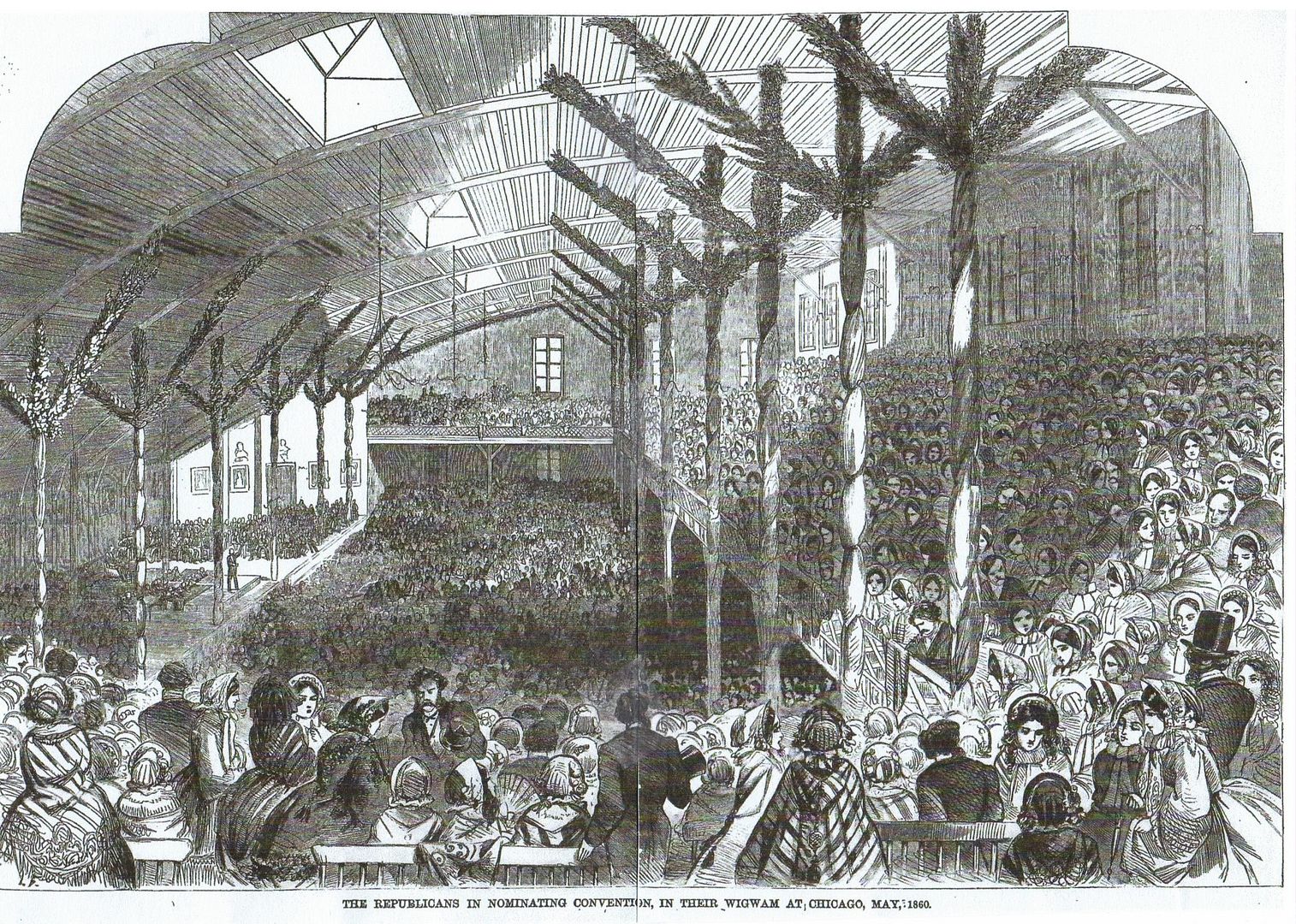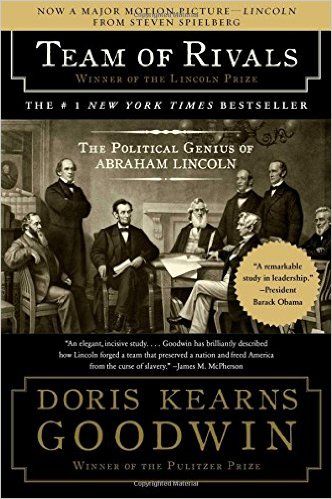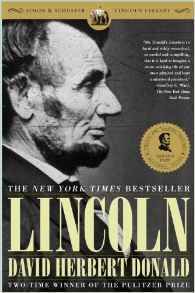
Free Republic University, Department of History presents U.S. History, 1855-1860: Seminar and Discussion Forum
Bleeding Kansas, Dred Scott, Lincoln-Douglas, Harper’s Ferry, the election of 1860, secession – all the events leading up to the Civil War, as seen through news reports of the time and later historical accounts
First session: November 21, 2015. Last date to add: Sometime in the future.
Reading: Self-assigned. Recommendations made and welcomed.
Posting history, in reverse order
To add this class to or drop it from your schedule notify Admissions and Records (Attn: Homer_J_Simpson) by reply or freepmail.
Link to previous thread
To: chajin; henkster; CougarGA7; BroJoeK; central_va; Larry Lucido; wagglebee; Colonel_Flagg; Amagi; ...
Republican Wigwam at Chicago – 2-3
From the Charleston Convention – 2, 4
Editorials – 4-5
The Lounger – 5-6
Humors of the Day – 6-7
My Aquarium – 7
The City of Chicago, Ill. – 7-8
The Woman in White, by Wilkie Collins, the Housekeeper’s Narrative continued – 9-12
Literary – 12
Domestic Intelligence – 12-13
Foreign News – 13-14
Republican Candidates for the Presidency – 15-17
The Lady with the Black Hood – 17-19
Hon. Caleb Cushing, President of the Charleston Convention – 19-21
Captain Brand of the Schooner “Centipede,” by Lieut. Henry A. Wise, U.S.N. (Harry Gringo). Part I, Chapter XIII-XV – 19-20, 22-23
A Drawn Battle, a l’Anglaise - 24
2 posted on
05/12/2020 6:24:20 AM PDT by
Homer_J_Simpson
("Every nation gets the government that it deserves." - Joseph de Maistre (1753-1821))
To: chajin; henkster; CougarGA7; BroJoeK; central_va; Larry Lucido; wagglebee; Colonel_Flagg; Amagi; ...
Continued from May 2
(reply #18.)

Abraham Lincoln: Speeches and Writings 1859-1865, edited by Don E. Fehrenbacher
3 posted on
05/12/2020 6:27:03 AM PDT by
Homer_J_Simpson
("Every nation gets the government that it deserves." - Joseph de Maistre (1753-1821))
To: chajin; henkster; CougarGA7; BroJoeK; central_va; Larry Lucido; wagglebee; Colonel_Flagg; Amagi; ...
Count Adam Gurowski to James S. Pike, Wednesday May 12, 1860 21 West 22d Street, May 12, 1860.
MY DEAR YANKEE: I am sorry not to be able to adopt your advice. I prefer not to publish it at all, as to do it by the help of Greeley and of the Tribune. I have my own personal feeling about it. I am sorry to hear that you are so unwell as to be disabled to go to Chicago. What is the matter? You ought to have told me.
Good-by. The world will not be a bit better if I do not publish my book. After all, if it would be a Helper, help would have been found.
Mes amities à Madame.
Yours,
GUROWSKI.
SOURCE: James Shepherd Pike, First Blows of the Civil War: The Ten Years of Preliminary Conflict in the United States from 1850 to 1860, p. 515
civilwarnotebook.blogspot.com
4 posted on
05/12/2020 6:28:46 AM PDT by
Homer_J_Simpson
("Every nation gets the government that it deserves." - Joseph de Maistre (1753-1821))
To: Homer_J_Simpson
Lincoln had the shortest entry when Harper’s listed all the contenders. Looks like a lot of pretty ladies are attending the Republican Convention.
5 posted on
05/12/2020 6:29:09 AM PDT by
C19fan
To: chajin; henkster; CougarGA7; BroJoeK; central_va; Larry Lucido; wagglebee; Colonel_Flagg; Amagi; ...
Mark W. Delahay to Abraham Lincoln, May 13, 1860 Tremont House,
Gage, Bro. & Drake, Proprietors
Chicago, 10 P M May 13th 1860
Hon A Lincoln
My Dear Sir
Since your Springfield friends have been fairly located matters have been looking up. I have taken to their quarters a number of the Iowa Delegates, some of the Minnesota and all the Kansas. I have taken “Cottenwood” into my Room, he is sound. Ross & Proctor of Kansas I think can be managed their prefference is Chase. But even with the Seward Delegates you are their 2nd Choice – Greely is here as a Proxie for Origon, and is telling a Crowd now around him that NY can be carried for Bates I think he is Calculated rather to injure Seward – Some of the N. J. men talk very well as I just learned from Col Ross – and so do some of the Mass men – they say they are for a success – I have induced the Penna Delegates to stop talking about their man as an ultum attim. They have mooted one thing, that would Kill them off and I have admonished them to abandon it, which was to call Ills Ind Penna & N. J. Delegates together to harmonize between you & Cameron, such a move would appear like a “Slate” and Seward is too potent here to attempt such a meeting, his friends would probably Slate us, if it were done – I have been up late & Early and am perfectly cool & hopeful –
Delahay
SOURCE: Abraham Lincoln Papers at the Library of Congress, Washington, D. C.
civilwarnotebook.blogspot.com
Mark W. Delahay Wikipedia page
7 posted on
05/13/2020 4:48:25 AM PDT by
Homer_J_Simpson
("Every nation gets the government that it deserves." - Joseph de Maistre (1753-1821))
To: chajin; henkster; CougarGA7; BroJoeK; central_va; Larry Lucido; wagglebee; Colonel_Flagg; Amagi; ...

Continued from May 10 (reply #26).


Doris Kearns Goodwin, Team of Rivals
9 posted on
05/15/2020 4:54:33 AM PDT by
Homer_J_Simpson
("Every nation gets the government that it deserves." - Joseph de Maistre (1753-1821))
To: chajin; henkster; CougarGA7; BroJoeK; central_va; Larry Lucido; wagglebee; Colonel_Flagg; Amagi; ...
Continued from May 9
(reply #24). 1

2

3

Bruce Catton, The Coming Fury
10 posted on
05/15/2020 4:56:38 AM PDT by
Homer_J_Simpson
("Every nation gets the government that it deserves." - Joseph de Maistre (1753-1821))
To: chajin; henkster; CougarGA7; BroJoeK; central_va; Larry Lucido; wagglebee; Colonel_Flagg; Amagi; ...
Continued from 5/11
(reply #27.)

The Diary of George Templeton Strong, Edited by Allan Nevins and Milton Halsey Thomas
11 posted on
05/15/2020 4:58:25 AM PDT by
Homer_J_Simpson
("Every nation gets the government that it deserves." - Joseph de Maistre (1753-1821))
To: chajin; henkster; CougarGA7; BroJoeK; central_va; Larry Lucido; wagglebee; Colonel_Flagg; Amagi; ...

Continued from May 9 (reply #22).
1

2

David Herbert Donald, Lincoln
13 posted on
05/16/2020 7:17:57 AM PDT by
Homer_J_Simpson
("Every nation gets the government that it deserves." - Joseph de Maistre (1753-1821))
To: chajin; henkster; CougarGA7; BroJoeK; central_va; Larry Lucido; wagglebee; Colonel_Flagg; Amagi; ...
James G. Blaine to Senator William P. Fessenden, May 16, 1860Private.
CHICAGO, Monday A. M., May 16, 1860.
MY DEAR SIR, — I arrived here Saturday night. . . . I may mention, however, that the Seward force is on the ground and assume an air of dictation which is at once unwarranted and offensive, and which I think will create a reaction before Wednesday. They cannot count up more than a third of the votes from States that can carry the ticket, and how much they intend or expect to make from such delegates as come from slave States has not yet transpired. Should he be nominated by the aid of the delegates that can promise him no support, the Pennsylvanians would consider it a most insulting disregard of their rights and wishes. I do not myself believe that he will be nominated, though a great many here think otherwise. If he is not, I will adhere to the opinion I expressed to you in Portland, that the game lies between Lincoln and yourself — Chase, McLean, Banks, and Bates stand no chance. Cameron is hotly urged by a majority of the Pennsylvanians, but the proposition is scouted on all hands outside of that State. Wade cannot be made a compromise candidate. His speeches in Maine and on the Western Reserve are remembered by too large a number.
SOURCE: Francis Fessenden, Life and Public Services of William Pitt Fessenden, Volume 1, p. 112
civilwarnotebook.blogspot.com
18 posted on
05/16/2020 7:25:54 AM PDT by
Homer_J_Simpson
("Every nation gets the government that it deserves." - Joseph de Maistre (1753-1821))
To: chajin; henkster; CougarGA7; BroJoeK; central_va; Larry Lucido; wagglebee; Colonel_Flagg; Amagi; ...
Senator William P. Fessenden to his Family, May 17, 1860 You will probably get the result at Chicago before this reaches you. We know nothing here except what appears by telegraph. It looks now as if Mr. Seward would fail. In that case Lincoln seems to be in the ascendant. I have no doubt it will either be Mr. Seward or a Western man. I have done everything I could to avoid being named at all, and have specifically directed the Maine delegation not to bring me forward in any event, or procure it to be done.
SOURCE: Francis Fessenden, Life and Public Services of William Pitt Fessenden, Volume 1, p. 113
civilwarnotebook.blogspot.com
William Barton Rogers to Henry Darwin Rogers, May 17, 1860
BOSTON, May 17,1860.
MY DEAR HENRY, . . . On Friday I made my address to the Natural History Society on their thirtieth anniversary, and according to all accounts was more than usually successful. As I did not prepare in writing, I have, of course, nothing permanent to show for it. But I suppose the chief object was attained, and I am content.
I have been making some further experiments on photographing the electrical light, and on binocular vision, the details of which I will send you in my next, with the request, perhaps, that you would present them at the Oxford meeting. I have obtained a very beautiful photographic impression of the stratified discharge, thus showing the absence of actinic as well as luminous rays in the dark interspaces. . . .
Mr. Alger has lately shown me a letter of yours to Herbert Spencer in regard to the publication of the latter's works in this country. He and Mr. Silsbee, of Salem, are interesting themselves in getting subscribers, as I most certainly shall do. Some of Spencer's reviews, which I have read, struck me as very remarkable productions. After a time I am sure that his writings will be in great request with the more liberal thinkers here.
The Constitutional-Union party, at their late convention in Baltimore, nominated Bell, of Tennessee, for President, and Everett for Vice-President. Hillard was one of the chief speakers, and won a shower of bouquets from the ladies. As no opinions were expressed, or principles announced, in regard to any of the stirring questions of the day, of course all went smoothly and pleasantly.
I was saddened to hear yesterday that Theodore Parker has been rapidly going down, and that he is not expected to be able to leave Florence. Desor has been with him, and perhaps is still his companion. But probably you know more of his condition and purposes than we do. . . .
Your affectionate brother,
WILLIAM.
SOURCE: Emma Savage Rogers & William T. Sedgwick, Life and Letters of William Barton Rogers, Volume 2, p. 33-4
civilwarnotebook.blogspot.com
George L. Stearns to Mary Hall Stearns, May 17, 1860
[May 17, 1860.]
I have to-day two letters from you and one from Frank — your letter, May 9 and Frank's May 12, and have telegraphed that I am here and will leave for Philadelphia to-night.
I found on arrival at Lawrence some earnest men, who are desirous to use active measures if they could have the means. Among them a Mr. Stewart, who tells me he formerly lived with Mr. Henry A. Page. S. has several colored people on his farm, one a good-looking young girl who, when her master tried to take improper liberties with her, knocked him down and ran off.
He, with others I saw, assured me that it was the wish of the majority of the people of Kansas to make it a “free state” for blacks as well as whites, and they would do so if the means could be procured to effect an organization.
If I had returned home my work would only have been half developed, and of course half done. I now feel confident that we can make the whole of Kansas a place of rest for the “panting fugitive,” and that done, Missouri, Arkansas, and the Indian Territory can be cleared of slaves.
Montgomery is a splendid man. I will tell you lots of stories about him when I get home.
SOURCE: Preston Stearns, The Life and Public Services of George Luther Stearns, p. 225-6
civilwarnotebook.blogspot.com
22 posted on
05/17/2020 6:37:35 AM PDT by
Homer_J_Simpson
("Every nation gets the government that it deserves." - Joseph de Maistre (1753-1821))
FreeRepublic.com is powered by software copyright 2000-2008 John Robinson











